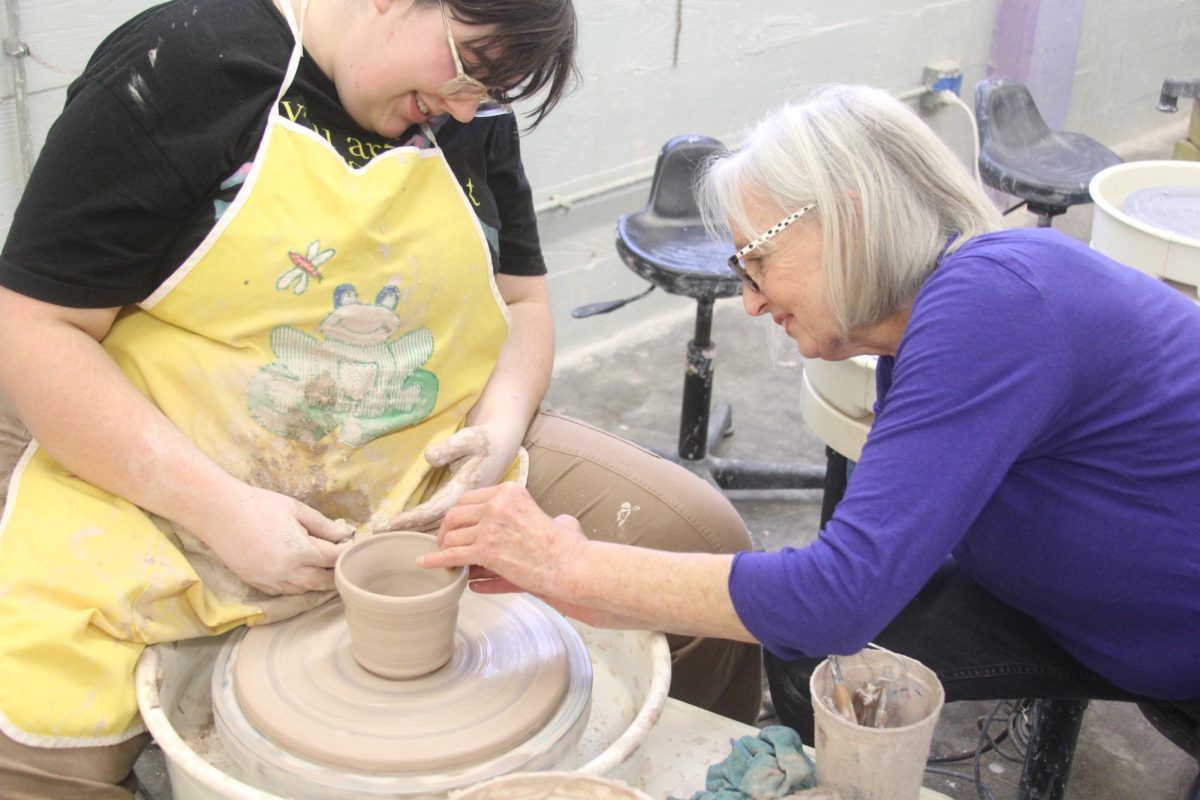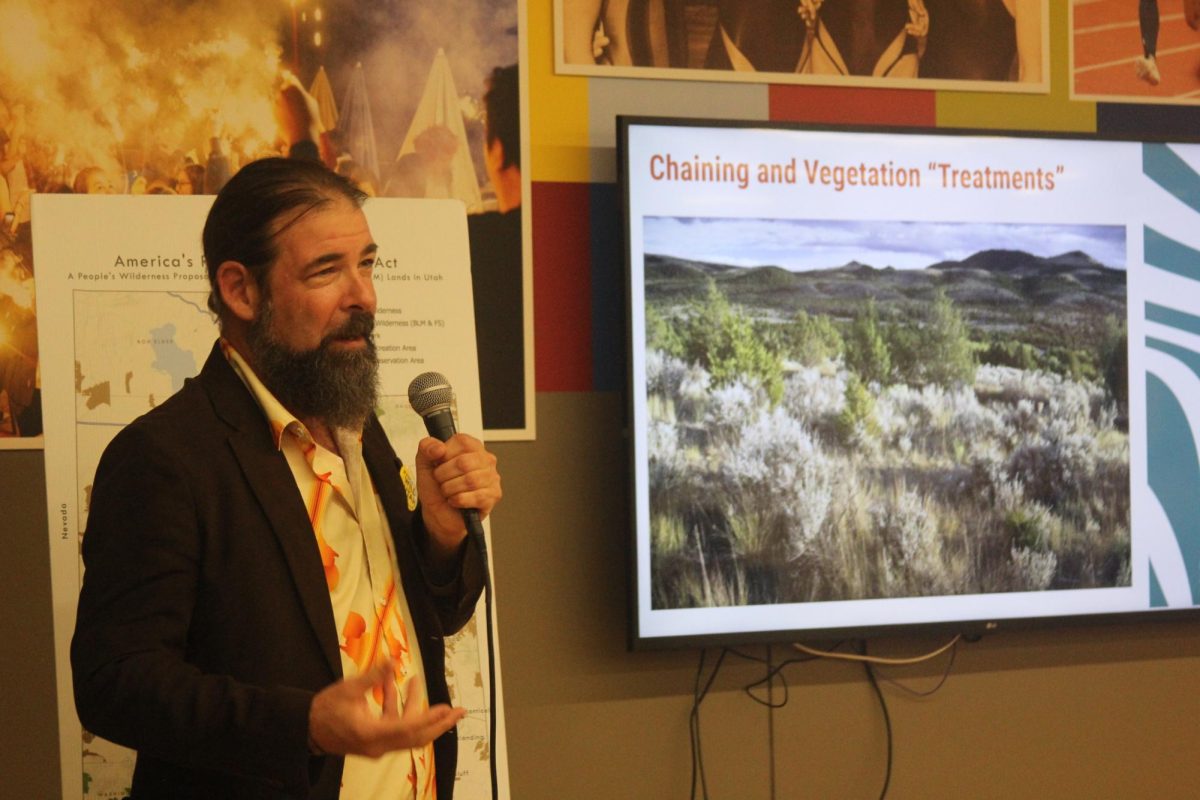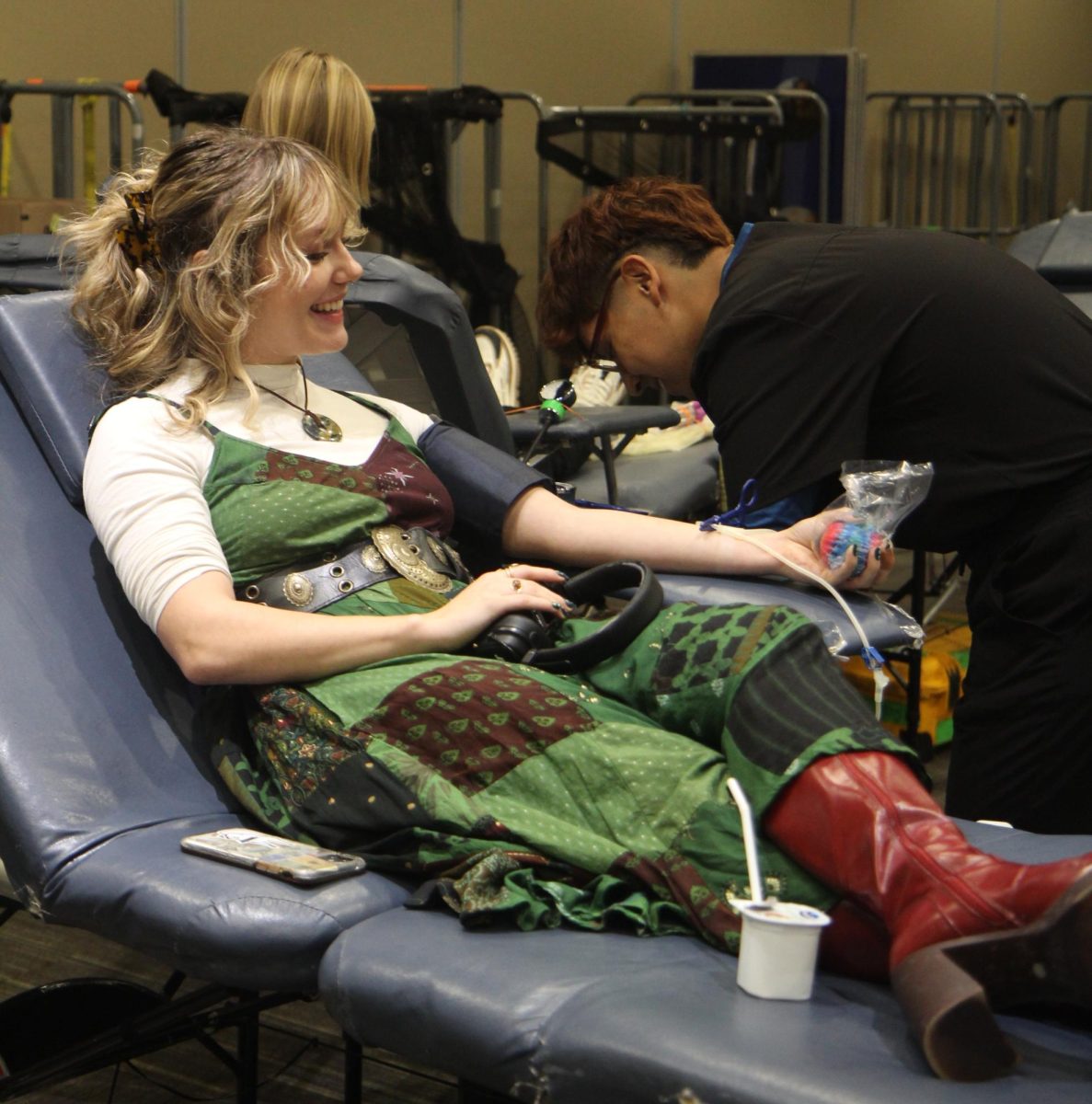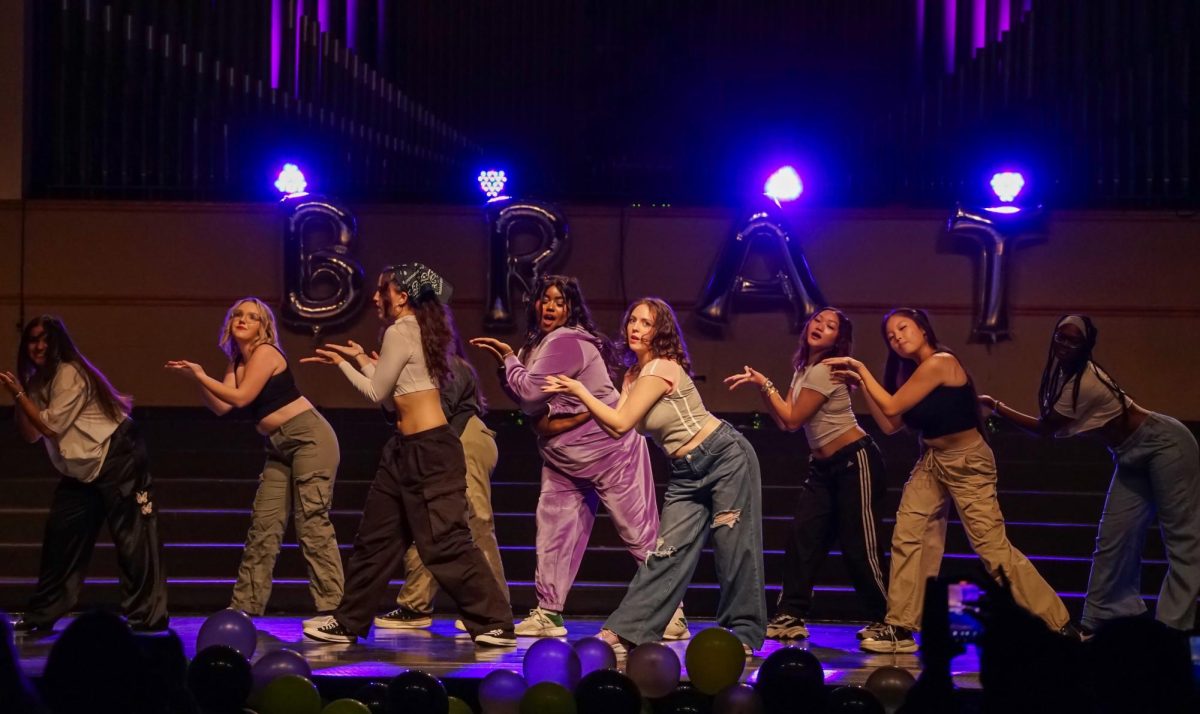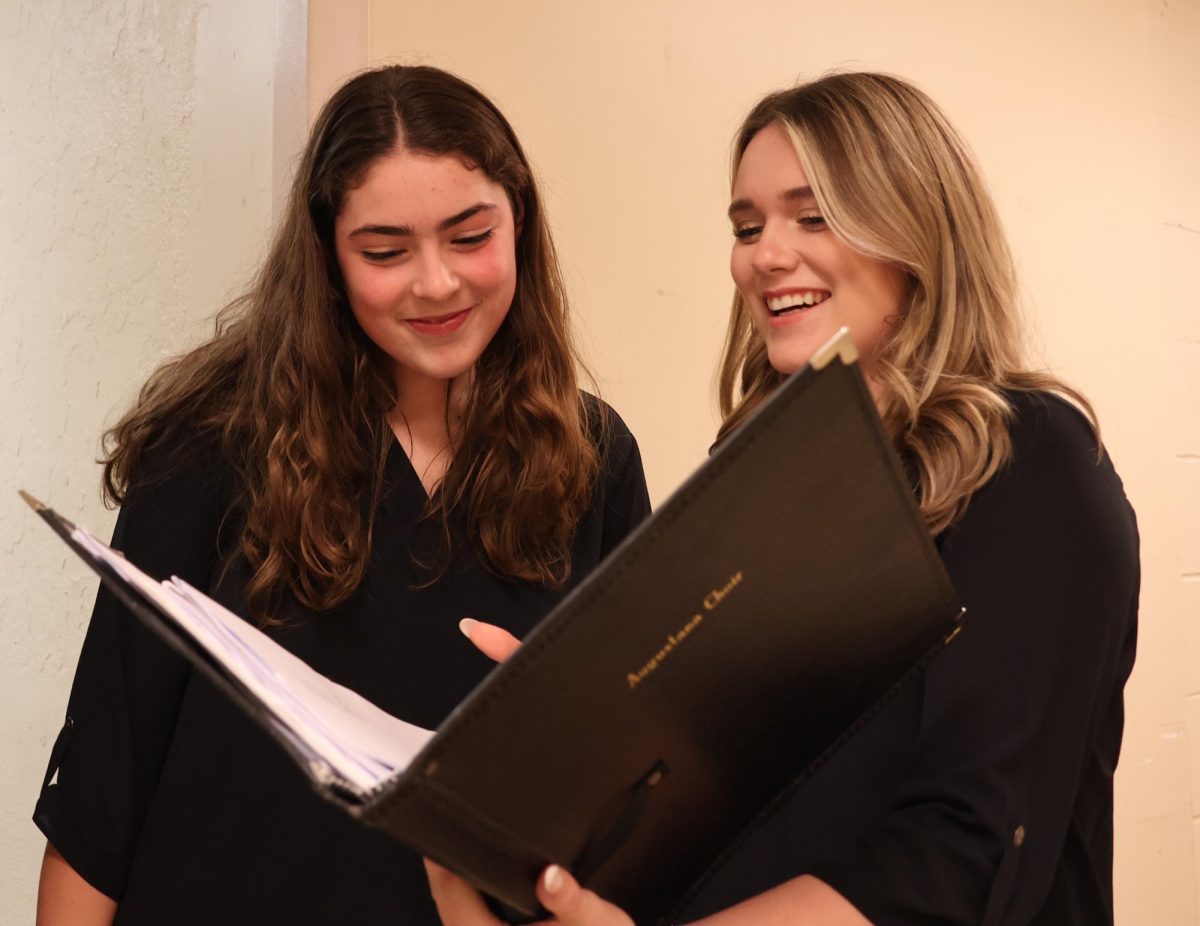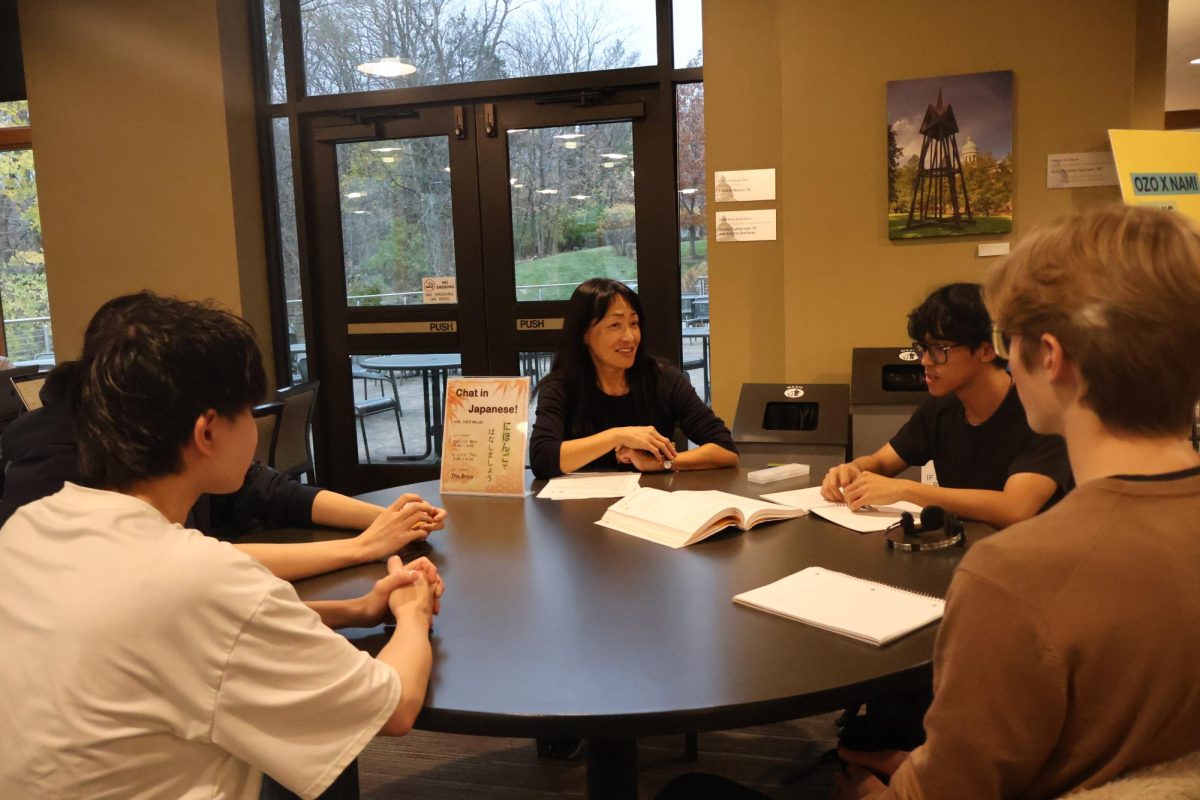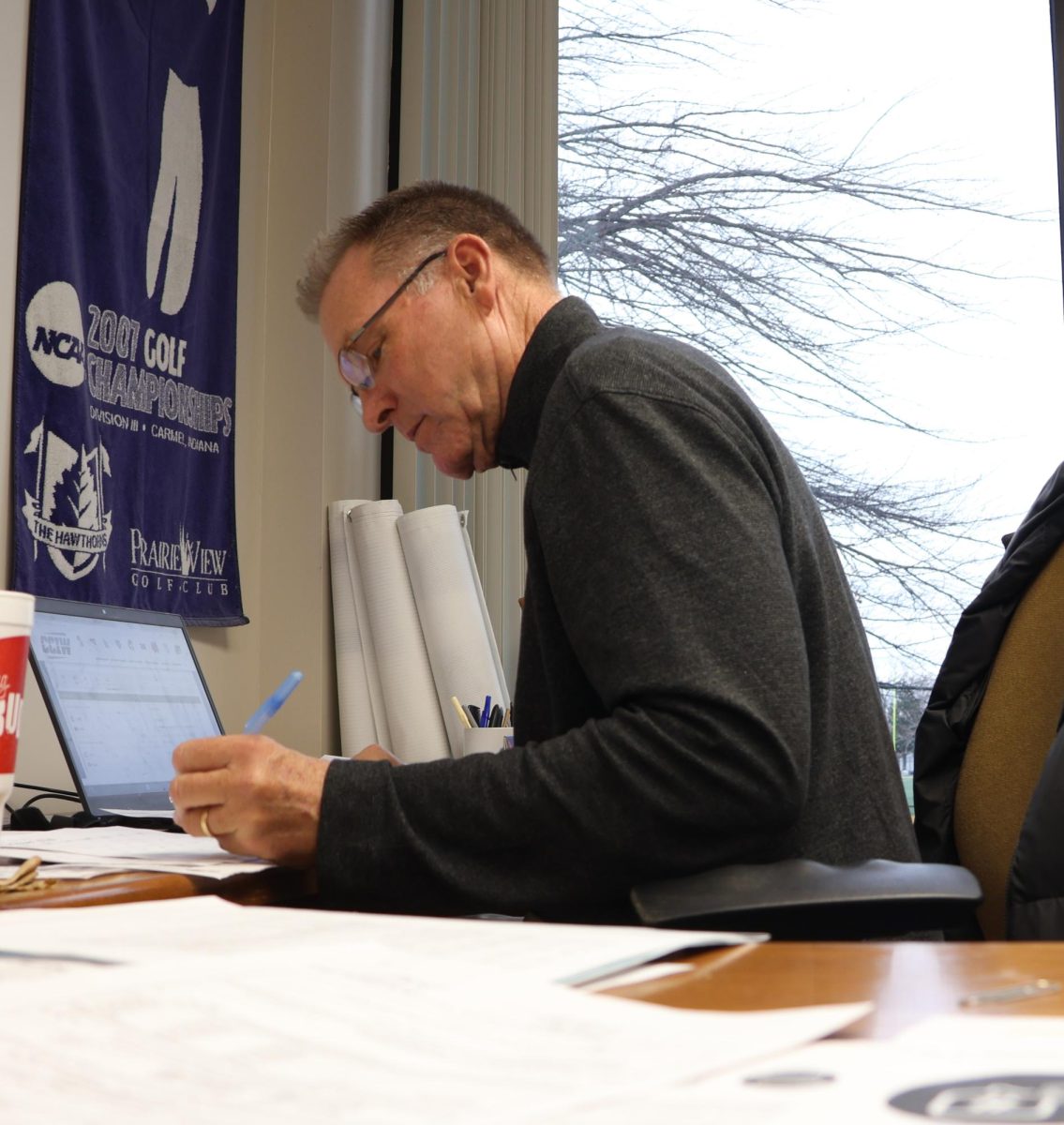Over the past month, COVID-19 vaccinations have become more accessible, especially in Illinois. Because of this, Augie students and faculty have gotten chances to get one of the three vaccines.
According to students, Augustana has been doing a good job of encouraging students to get the vaccine.
Naomi Beckley, senior, said, “[Augustana] is better than most universities” when it comes to making the vaccine available. They not only use the phrase Vikings Get Vaccinated in a sticker, but vaccination clinics are also being offered on campus.
These vaccination clinics are located at PepsiCo Recreation Center, which is the same place that offered the COVID-19 surveillance testing. This is very useful for students who do not have cars to drive to clinics that are far from campus, and it encourages students to get vaccinated.
For students working in healthcare, getting vaccinated was a great opportunity. “I work in a hospital so my exposure rate tends to be a lot higher,” Kasia Olechno, senior, said. “I live with four other people. I didn’t want my roommates to get sick because of me; I would feel terrible about it.”
Due to the encouragement to get vaccinated, students feel safer with the thought of vaccinations becoming mandatory. This rule might ensure a more normal school year in the fall, and allow students to have activities like they normally would.
“I would be very happy if they made it mandatory except for people with certain medical exemptions,” Quinn Fabish, sophomore, said. Fabish and other students who cannot safely or easily get the vaccine would benefit from herd immunity, which would be achieved when a vast majority of students are vaccinated.
However, it’s difficult to mandate a required vaccine at the beginning of the 2021-22 school year. Dara Wegman-Geedey, professor of biology and chair for the public health program, explained why Augustana will most likely not require vaccinations in the fall.
“Since the vaccine has only been approved for emergency use, we can strongly encourage [students] and we can answer questions, but I don’t think Augie can require it,” Wegman-Geedy said.
While it is not required, Wegman-Geedy was adamant about educating wary students. Many people who are hesitant about the vaccines are worried about side-effects. Wegman-Geedy emphasizes that side-effects aren’t necessarily bad. While they are tough to handle, they only last a day or two for most people.
“Side effects are signs that our immune system is responding,” Wegman-Geedy said. “When I look at a side effect, I don’t think of it as a side effect. It’s just your immune system sensing it, noticing it, and then showing it to the rest of the immune system so you can be protected.”
As all of the available vaccines against Covid-19 are mRNA vaccines, none of them actually introduce a weakened or inactive form of the virus into your bloodstream. Rather, an mRNA vaccine delivers the instructions on how to make Covid-19 antibodies to your cells, which replicate them and provide immunity.
While the virus is never present in your body, however, The mRNA delivers the instructions to cells (without entering the nucleus or altering your DNA at all) and afterwards is broken down. After your body knows how to produce the antibodies, there’s no trace of the vaccine itself in your body.
The side effects of receiving the vaccine– just like any immunization– are the body’s reaction to a foreign substance. They are produced by your body’s innate response to unknown substances and are proof of a healthy immune system.
Wegman-Geedy also pointed out that fatigue after the shot is a good sign. “Your immune system is using all this energy making memory cells,” Wegman-Geedy said. When side-effects are shown, it is simply your body doing what it needs to do in order to protect itself later.
“Having a headache and sore arm for a day or two is not nearly as bad as what COVID-19 could be like,” Beckley, who received her first dose, said.
The same way that COVID-19 could be worse for some people than others, vaccine reactions vary between people. Because some students are busy with their academic year or have adverse reactions to vaccines, they are waiting to get their first shot until after spring semester is over.
“I have really bad reactions to vaccines in general, they will knock me out up until a week or a week and a half. It’s been a crazy semester, I decided as soon as the semester is over I’ll go out and get it. I don’t want it to interfere with my academics,” Fabish said.
While Fabish is aware the vaccine will make things difficult for her, she still has a desire to receive hers during a period of time where she will not be missing out on schoolwork or inhibiting her work as a CA.
While the process to develop the vaccine took less than usual, it was in no way rushed. “This vaccine isn’t as new as people think,” Olechno said. “It has been in the works for a long time. Scientists have been creating vaccines for coronaviruses since SARS, so about 13-14 years now. It is not brand new.”
Increased funding, clinical trial volunteers and government support led to the vaccine becoming available quickly in large enough amounts to vaccinate young people.
Students who have received the vaccine have been less anxious about transmission on campus. While they’ve had to set aside days after the vaccination to rest and deal with side effects, those are a small set-back in comparison to COVID-19 quarantines. Overall, the vaccination has acted as a stress reliever for students.
“It’s just thinking about the long term, even if the short term doesn’t look great,” Blake Traylor, sophomore, said. “I can focus more on classwork and not so much on, ‘Oh, this guy sneezed over here in the CSL when I walked close to them.’”
In the short term, academics have been impacted by Covid-19 as well, leading to more interest in vaccines. “School during the pandemic is very different. I feel like everyone on campus is experiencing burnout,” Fabish said.
Lots of nervousness and worry came with COVID-19 and school. When students should be focusing on studies, they are busy wondering whether or not their friend has tested positive or negative. If they were to be in close contact with a positive test or if they had a positive test themselves, students would have to quarantine.
“Having to miss out on certain things, having to go into quarantine, has been really stressful,” Beckley said. “Having that weight off my shoulders is helpful. Knowing that I have the vaccine and that my family members have the vaccine is really good for my mental health.”
Alongside mental health, family is commonly thought of when students and faculty came up with their reasons to vaccinate. Not being able to see certain family members has been extremely difficult, and many people long to feel the comfort and safety of these members again.
“Now that we’re fully vaccinated, we can actually go see family,” Dr. Rebecca Heick, assistant professor of public health, said. “It was a really powerful experience for me to know that not only was I protecting myself, but the thought that my vaccination could protect someone else as well.”
For many members of the Augustana community, it is a beautiful thing to get the vaccination for yourself and others. Overall, faculty and students appear to want togetherness back. Having life back to normal, though it seems impossible, would be the goal.
During COVID-19, people have begun to realize the normalcy they had taken for granted. Though it has been a long battle, vaccinations are giving a sense of hope. Augustana encourages vaccinations and for concerned community members, the school and its faculty will always be willing to answer questions and educate people.
“Hopefully the feelings of isolation will decrease once people start getting more safe and vaccinated,” Beckley said.
Categories:
Vikings get vaxxed
June 9, 2021
0
More to Discover
